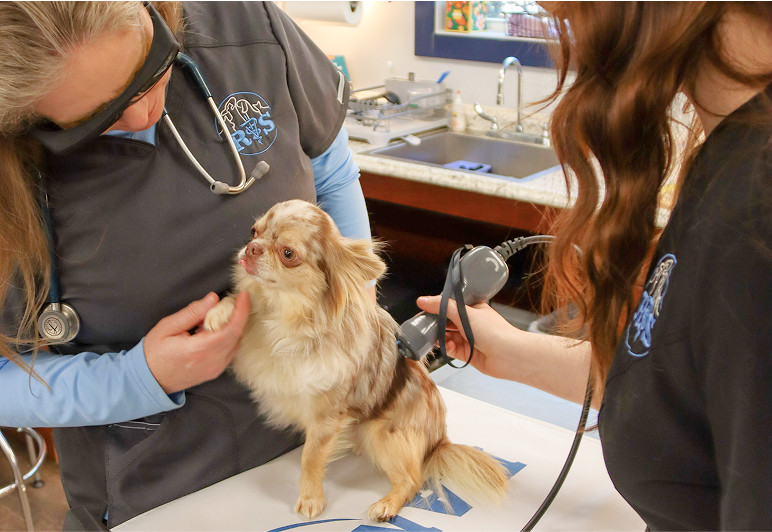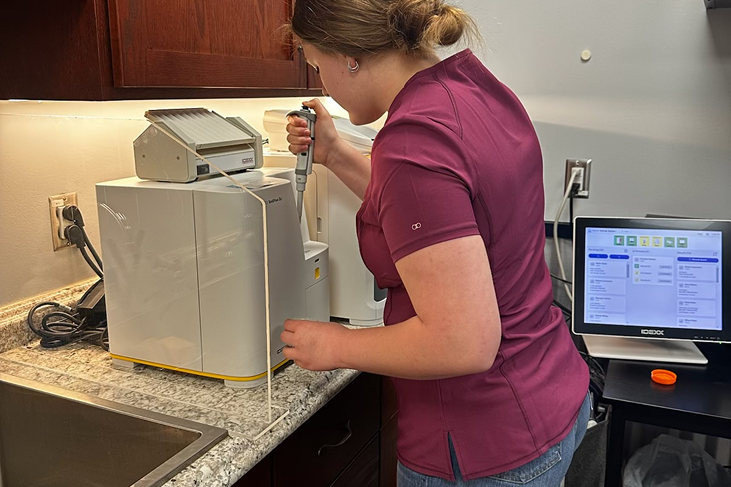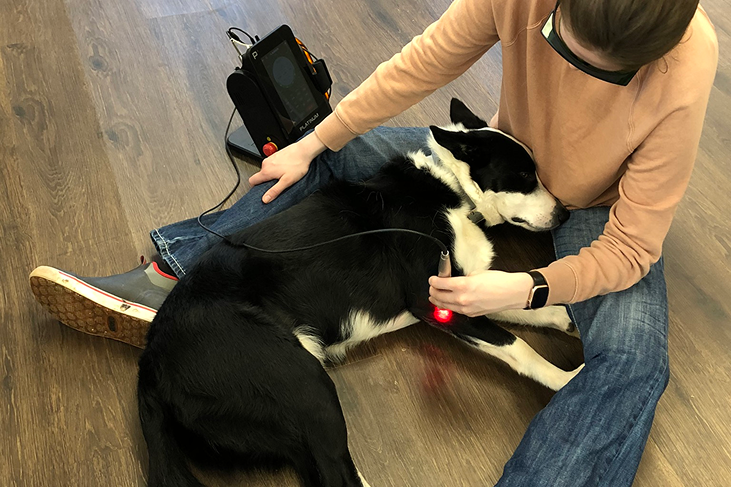Advanced Diagnostics and Treatment
Technology meets tender loving care

X-ray and Ultrasound

Fractures and Orthopedic Issues
X-rays are commonly used to assess broken bones, joint issues, and other skeletal problems in pets. They can also help diagnose conditions like arthritis or bone tumors.
Internal Injuries and Bleeding
In cases of trauma, such as after an accident, X-rays and ultrasound can help detect internal bleeding, organ damage, or fluid accumulation in the abdomen or chest. This allows for quick intervention and management.
Heart Conditions
An ultrasound of the heart (echocardiogram) helps us evaluate the heart’s function and structure, detecting conditions such as heart murmurs, heartworm disease, or congenital defects. X-rays also provide insight into the size and shape of the heart and lungs.
Cancer Detection
Both radiology and ultrasound are crucial for identifying and monitoring tumors in soft tissues, organs, or bones. X-rays can show abnormalities in the chest or abdomen, while ultrasound provides a more detailed look at soft tissues, such as the liver, kidneys, and lymph nodes.
Abdominal Issues
Ultrasound is particularly useful for examining the organs in the abdomen, such as the liver, kidneys, pancreas, intestines, and bladder. It can help identify conditions like cysts, kidney disease, bladder stones, or gastrointestinal blockages.
Urinary Problems
Ultrasound can be used to detect issues with the bladder, kidneys, and urinary tract, such as bladder stones, tumors, or signs of infection. It can also help guide the collection of urine samples for further testing.
Pregnancy and Reproductive Health
Ultrasound is a valuable tool for monitoring pregnancy in female pets, allowing us to assess the health of the developing puppies or kittens. X-ray can also be used to determine the number of puppies/kittens. Ultrasound can also help evaluate reproductive organs and detect conditions like cysts or tumors.
Lung Disease
Chest X-rays are commonly used to evaluate the lungs for signs of pneumonia, fluid buildup, or masses. They can also be used to assess respiratory diseases, such as asthma or bronchitis.

We treat your furry
friends like family.
Schedule Appointment
Extensive Lab Work Capabilities

Urinalysis
Urinalysis checks the health of your pet’s kidneys and urinary tract. It involves examining the urine for abnormalities such as signs of infection, kidney function, and urinary crystals or stones.
Thyroid Function Testing
Hypothyroidism (low thyroid hormone) is a common condition in dogs, and hyperthyroidism (high thyroid hormone) is common in older cats. We can test your pet’s thyroid levels to help diagnose these conditions and adjust their treatment plan accordingly.
Parasite Screening
Fecal tests are used to detect internal parasites like worms, protozoa, or bacteria that may be affecting your pet’s digestive health. Common parasites tested for include: roundworms, hookworms, tapeworms, giardia, coccidia (protozoan parasites), and whipworms.
Infectious Disease Testing
We can perform tests to diagnose a range of infectious diseases that may affect your pet’s health, including: Leptospirosis (Lepto), Lyme disease, Feline Leukemia Virus (FeLV), and Feline Immunodeficiency Virus (FIV).
Allergy Testing
If your pet is suffering from chronic skin problems, itching, or ear infections, allergy testing can help identify specific allergens—whether they are environmental (like pollen or dust mites) or food-related. Knowing the source of the allergy helps us develop an effective treatment plan.
Pre-Surgical Labwork
Before surgery, especially in older pets or those with underlying health conditions, we conduct pre-surgical lab tests to ensure your pet is healthy enough for anesthesia and surgery.
Cold Laser Therapy
Wounds
Incisions
Arthritis
Fractures
Hot Spots
Back Injuries

